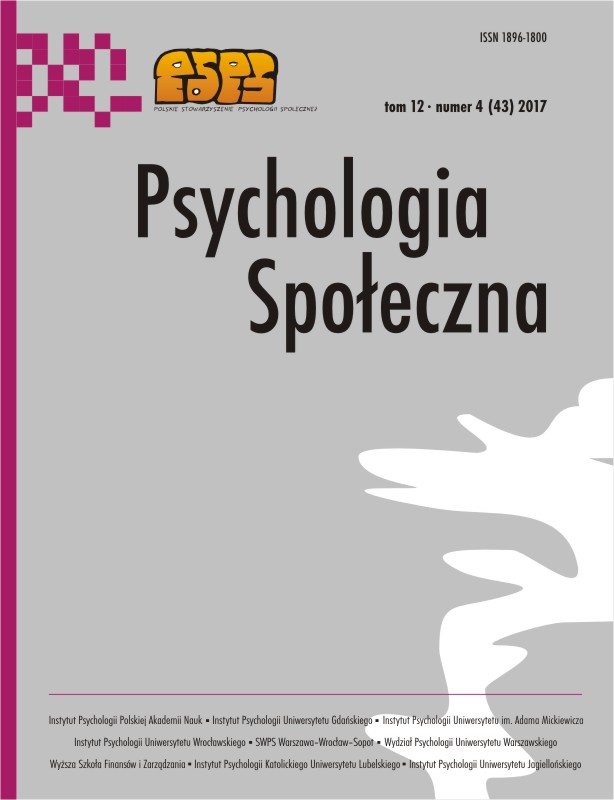Mechanizmy leżące u podstaw efektów zagrożenia stereotypem: przegląd teorii
Mechanisms underlying stereotype threat effects: A review
Author(s): Anna M. Rędzio, Mirosław KoftaSubject(s): Social Sciences, Psychology, Sociology
Published by: Wydawnictwo Naukowe Scholar Sp. z o.o.
Keywords: Stereotype; stereotype threat; cognitive deterioration; cognitive resources
Summary/Abstract: Stereotype threat is experienced when one is afraid of confirming the negative stereotype about intellectual abilities of the social group he or she belongs to (Steele & Aronson, 1995; Steele, 1997). This phenomenon brings about several negative consequences for the individuals and the society as a whole, one of the most important being performance impairment, demonstrated by people stigmatized by the described stereotype. In this paper, we review and discuss the most recent theoretical explanations of the stereotype threat phenomenon. The first one claims that stereotype threat activates anxiety and physiological reaction to stress, the processes interfering with efficient performance of difficult tasks. The other theory proposes that, after stereotype activation, working memory of stigmatized individual is overloaded by negative emotions, thoughts and vigilance, resulting in depletion of working memory resources necessary for performing well on difficult tasks. According to the third framework – the theory of promotion vs. prevention focus – an individual facing a stereotype threat is focused on avoiding failure rather than on achieving success, the mental set interfering with efficient problem-solving on complex intellectual tasks. In addition to critically analyzing the discussed theories and their mutual relations, we also review several hypothetical moderators of the effects of stereotype threat on performance of cognitively demanding, complex tasks.
Journal: Psychologia Społeczna
- Issue Year: XII/2017
- Issue No: 43
- Page Range: 367-379
- Page Count: 13
- Language: Polish

